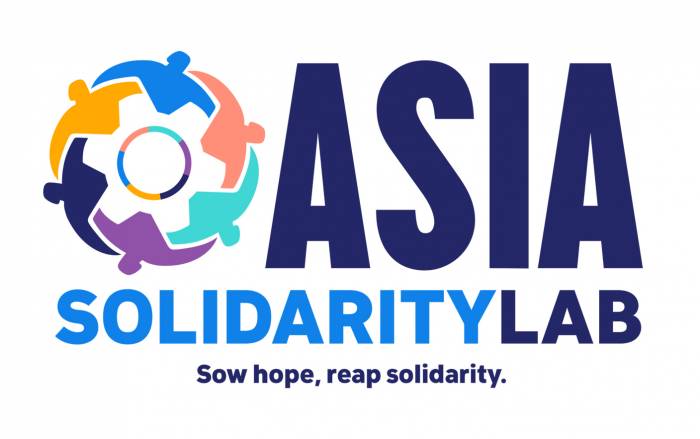 The Asia Solidarity Lab took place on August 26-28 and drew in 619 participants from 50 countries. The event, which featured five plenary panels, 32 learning and strategy sessions and 6 cultural performances, sought to foster solidarity and strategic cooperation among climate, gender, health, youth, and human rights movements across the region.
The Asia Solidarity Lab took place on August 26-28 and drew in 619 participants from 50 countries. The event, which featured five plenary panels, 32 learning and strategy sessions and 6 cultural performances, sought to foster solidarity and strategic cooperation among climate, gender, health, youth, and human rights movements across the region.
Panels, learning and strategy sessions featured experts, storytellers, journalists, organizers, young activists, longtime activists, movement builders, lawyers and policy advocates, and concluded with a closing action which entailed inviting participants and organizations to sign the Asia Solidarity Lab Manifesto — a document whose demands include the upholding of human rights and attainment of climate, economic, gender, and health justice as the region looks towards a post-pandemic future.
The event was co-hosted by Asia Climate Rally, Greenpeace Southeast Asia, #BreakFreeFromPlastic, Asia Pacific Network of Environment Defenders, International Women’s Rights Action Watch Asia Pacific and People’s Vaccine Alliance Asia.
Setting the tone of the event at the opening plenary panel, Executive Director of Greenpeace Southeast Asia Nadarev Sano said:
“The climate crisis is going to make this world better, because it gave birth to this amazing movement. It means we have no other option but to stand up, transform the world, and fight to bring back the dignity in the lives of people”.
Highlighting the relevance of economic justice to wider issues, Sohanur Rahman of YouthNet Bangladesh said:
“The climate crisis is not only a development issue. It’s an economic issue. Industrialization is connected to the climate crisis. Capitalism, colonialism and domination – especially man’s domination of nature – has created this crisis”. YouthNet is pushing for Bangladesh to pivot towards renewable energy development and calling for the adoption of a Green New Deal to address the ‘dual crisis’ of climate and inequality.
On Day 2, Award-winning Indian activist Vidya Dinker emphasized the need to center women in addressing the climate crisis:
“To find solutions we need to center our women. They are the ones who know how to deal with crises. If we make women captain of the ship, we shall have some real change” she said.
Shiphrah Belonguel, sexual and reproductive health rights activist from the Philippines said the pandemic has underlined existing health and gender inequalities: “There is a general situation of economic precarity, but the risk is heightened for women and other marginalized genders. The pandemic as a sustained crisis allows us to examine the myriad inequities embedded in our public health systems” she said.
A palpable undercurrent of the Asia Solidarity Lab discussions was the upcoming COP26 climate talks set to be held in Glasgow in November.
“There is so much information available – speculations that are now facts,” said Heeta Lakhani of YOUNGO, the UNFCCC’s youth constituency. “Climate change is affecting people’s lives, and there is no reason that COP26 shouldn’t be the game-changer that we need.
If our world leaders cannot come together and agree on something that can pull us through, then I’m really short of words” she continued.
As Asia continues to reel from and grapple with the health, economic and social impacts of the Covid-19 pandemic, communities in the region are faced with added challenges arising from vaccine inequality, climate impacts, human rights violations and oppressive governance structures.
While the dual crisis of the pandemic and climate emergency exacerbate existing inequalities and disproportionately impact the already marginalized, the Asia Solidarity Lab represented an unprecedented, intersectional coalescence of movements across Asia, united in their missions to peacefully strategize for the region’s future.
Notes to Editors
For press enquiries please contact:
Contact: Pascale Hunt [email protected]
Website: asiasolidaritylab.org